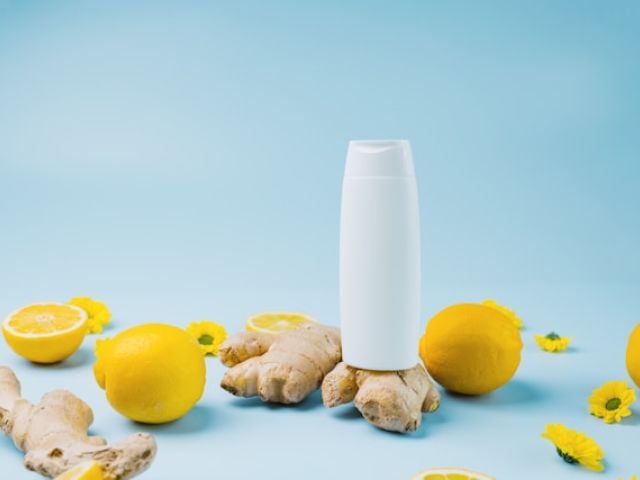
Can Vitamin C and Zinc Prevent or Shorten Your Cold?
You’ve probably heard it countless times: “Take some vitamin C and zinc when you feel a cold coming on.” But does this age-old advice actually work?
The relationship between these nutrients and the common cold has been studied for decades. The research tells a more nuanced story than most people realize.
Key Takeaways
- Neither vitamin C nor zinc prevents colds in healthy adults
- Zinc lozenges may shorten cold duration by 2-3 days if started within 24 hours
- Vitamin C helps prevent colds in athletes under extreme physical stress
- Both nutrients provide modest treatment benefits but aren’t miracle cures
What Mayo Clinic and Research Tell Us About Fighting Colds
The Mayo Clinic and major research institutions have spent years examining whether vitamin C and zinc can prevent or treat colds. A systematic review of the evidence reveals their findings might surprise youThe Mayo Clinic and major research institutions have spent years examining whether vitamin C and zinc can prevent or treat colds. A systematic review of the evidence reveals their findings might surprise you1.
The short answer? These nutrients won’t prevent colds in most people. But they may offer some help once you’re already sick.
Does Vitamin C Actually Fight Colds?

Cold Prevention
Here’s what the science shows: vitamin C doesn’t prevent colds in the general population. A massive Cochrane review looked at 29 trials with over 11,000 people. Regular vitamin C supplementation showed virtually no difference in cold prevention compared to placebo2.
Athletes and people under extreme physical stress saw their cold risk cut in half when taking vitamin C. This benefit applied to marathon runners, skiers, and soldiers in harsh conditions.
Cold Duration and Recovery
When taken regularly before getting sick, vitamin C can shorten cold duration by about 8% in adults and 14% in children. That translates to roughly 13 fewer hours of misery during a week-long cold.
Research suggests vitamin C may work by helping reduce illness duration. It’s not a guaranteed remedy for everyone, though.
Recent research shows vitamin C works better on severe cold symptoms than mild ones. It reduced severe symptom intensity by 15%, with the biggest impact on the worst symptoms3.
Starting Vitamin C After Symptoms Begin
Unfortunately, waiting until you feel sick to start taking vitamin C shows little benefit. Seven studies found no consistent effect when people began supplementation after cold symptoms started4.
Can You Take Zinc for Colds?

Let’s take a look at the evidence for zinc.
Cold Prevention
Like vitamin C, zinc doesn’t prevent colds in healthy adults. The 2024 Cochrane review concluded there’s insufficient evidence to recommend zinc for cold prevention5.
How Zinc May Reduce Cold Duration
Here’s where zinc gets interesting. When taken as lozenges within 24 hours of symptom onset, zinc can reduce cold duration by approximately 2.25 days6.
Zinc acetate lozenges work best, reducing cold duration by 37% in adults when properly formulated. Research suggests zinc may inhibit viral replication in the nose and throat area. The key factors include:
- High zinc content (at least 75mg elemental zinc daily)
- Zinc acetate rather than zinc gluconate
- Starting within 24 hours of first symptoms
- Avoiding additives like citric acid that bind the zinc
Zinc Side Effects to Consider
Zinc lozenges commonly cause unpleasant side effects. These include bad taste, nausea, and mouth irritation. More concerning, intranasal zinc products have been linked to permanent loss of smell and should be avoided completely.7
| Nutrient | Prevention | Treatment | Side Effects |
|---|---|---|---|
| Vitamin C | Benefit for athletes | Modest duration reduction | Generally safe |
| Zinc | No effect | 2-3 day reduction | Bad taste, nausea |
Taking Vitamin C and Zinc Together

Limited research exists on combining these nutrients for cold treatment. Two small studies found that 1000mg of vitamin C plus 10mg of zinc daily reduced runny nose duration, with one showing 27% faster symptom relief.8
A larger study of 360 people examined a combination product containing echinacea, zinc, and vitamin C. Participants recovered 1.39 days faster with 17% lower symptom severity scores compared to placebo.
While promising, this evidence remains insufficient for firm recommendations about vitamin C and zinc combinations.
Natural Support for Your Immune System
Your immune system needs consistent support year-round, not just when you’re fighting off a virus. Oxidative stress from free radicals can weaken your body’s natural defenses, making you more susceptible to infections.
Jinfiniti’s Natural Vitamin C + Zinc provides whole food vitamin C from amla extract plus bioavailable zinc chelate. This combination supports antioxidant activity and immune function without the synthetic additives found in many supplements.
Unlike isolated nutrients, whole food sources provide cofactors that enhance absorption and utilization. The amla-derived vitamin C in our formula delivers powerful antioxidant support while the chelated zinc ensures better bioavailability.
Consider pairing immune support with cellular health supplements that address the root causes of weakened immunity. When your cells function well, your entire immune system performs better.
The Science on Flu vs Cold
The research focuses primarily on common colds rather than influenza. There’s currently no strong scientific evidence that vitamin C or zinc helps against the flu virus.
Vaccination remains your best protection against influenza. Natural antihistamines may help with seasonal allergy symptoms that people sometimes mistake for cold symptoms.
Dosage and Safety Guidelines

Vitamin C:
- Generally safe up to 2000mg daily
- Higher doses may cause digestive upset
- Best absorbed in divided doses throughout the day
Zinc:
- Don’t exceed 40mg daily for long-term use
- Take with food to reduce stomach irritation
- Avoid nasal zinc products
Important Considerations:
People with chronic fatigue or compromised immune systems should consult healthcare providers before starting any supplement regimen. What works for healthy adults may not apply to those with underlying health conditions.
🧬 MORE INSIGHTS ON VITAMIN C
- Your gut health might benefit more from vitamin C than you realize. Vitamin C supports digestion in surprising ways.
- Confused by supplement options? Not all forms of vitamin C work the same way in your body.
- Many people don’t know vitamin C can support weight loss through its effects on metabolism and fat burning.
Bottom Line
The evidence shows vitamin C and zinc have modest benefits for cold management. They’re not miracle cures, though. Here’s what you can reasonably expect:
- Prevention: Neither nutrient prevents colds in most people. Athletes under extreme stress may benefit from vitamin C.
- Treatment: Zinc lozenges started within 24 hours may reduce cold duration by 2-3 days. Regular vitamin C supplementation provides minor duration reduction.
- Combination: Limited evidence suggests potential benefits, but more research is needed.
The effects are modest and must be weighed against potential side effects and costs. For better immune support, focus on proven strategies like adequate sleep, regular exercise, stress management, and a nutrient-dense diet.
When you do supplement, choose high-quality products with bioavailable forms and avoid the hype around mega-doses. Your immune system works best when supported consistently, not just when you’re already sick.
Remember, if cold symptoms persist beyond 10 days or get noticeably worse, consult a healthcare provider. This helps rule out bacterial infections or other complications that may require medical treatment.
Referenced Sources:
- https://newsnetwork.mayoclinic.org/discussion/mayo-clinic-minute-can-vitamin-c-keep-the-common-cold-away/ ↩︎
- https://doi.wiley.com/10.1002/14651858.CD000980.pub3 ↩︎
- https://pubmed.ncbi.nlm.nih.gov/38082300/ ↩︎
- https://www.cochranelibrary.com/cdsr/doi/10.1002/14651858.CD000980.pub2/full ↩︎
- https://www.cochrane.org/about-us/news/inconclusive-evidence-suggests-zinc-may-slightly-shorten-common-cold ↩︎
- https://pmc.ncbi.nlm.nih.gov/articles/PMC7356429/ ↩︎
- https://www.nccih.nih.gov/health/tips/tips-natural-products-for-the-flu-and-colds-what-does-the-science-say ↩︎
- https://journals.sagepub.com/doi/10.1177/147323001204000104 ↩︎

Get weekly health insights and exclusive offers by joining our newsletter.










